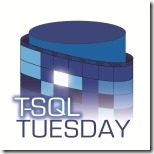And technology changes as quickly as the numbers on a clock. A digital clock, of course – the numbers never change on an analogue one.
I think it’s nice to have this month’s T-SQL Tuesday (hosted by Koen Verbeeck (@ko_ver)) on this topic, as I delivered a keynote at the Difinity conference a couple of months ago on same thing.
In the keynote, I talked about the fear people have of becoming obsolete as technology changes. Technology is introduced that trivialises their particular piece of skill – the database that removes the need for a filing cabinet, the expert system that diagnoses sick people, and the platform as a service that is managed by someone other than the company DBA. As someone who lives in Adelaide, where a major car factory has closed down, costing thousands of jobs, this topic is very much at the forefront of a lot of people’s thoughts. The car industry has been full of robots for a very long time – jobs have been disappearing to technology for ages. But now we are seeing the same happen in other industries, such as IT.
Does Automatic Tuning in Azure mean the end of query tuners? Does Self-Service BI in Excel and Power BI mean the end of BI practitioners? Does PaaS mean the end of DBAs?
I think yes. And no.
Yes, because there are tasks that will disappear. For people that only do one very narrow thing, they probably have reason to fear. But they’ve had reason to fear for a lot longer than Azure has been around. If all you do is check that backups have worked, you should have expected to be replaced by a script a very long time ago. The same has applied in many industries, from production lines in factories to ploughing lines in fields. If your contribution is narrow, you are at risk.
But no, because the opportunity here is to use the tools to become a different kind of expert. The person who drove animals to plough fields learned to drive tractors, but could use their skills in ploughing to offer a better service. The person who painted cars in a factory makes an excellent candidate for retouching dent repair, or custom paint jobs. Their expertise sets them apart from those whose careers didn’t have the same background.
As a BI practitioner today, self-service BI doesn’t present a risk. It’s an opportunity. The opportunity is to lead businesses in their BI strategies. In training and mentoring people to apply BI to their businesses. To help create visualisations that convey the desired meaning in a more effective way than the business people realise. This then turns the BI practitioner into a consultant with industry knowledge. Or a data scientist who can transform data to bring out messages that the business users couldn’t see.
As the leader of a company of database experts, these are questions I’ve had to consider. I don’t want my employees or me to become obsolete. We don’t simply offer health checks, BI projects, Azure migrations, troubleshooting, et cetera. We lead business through those things. We mentor and train. We consult. Of course, we deliver, but we are not simply technicians. We are consultants.
